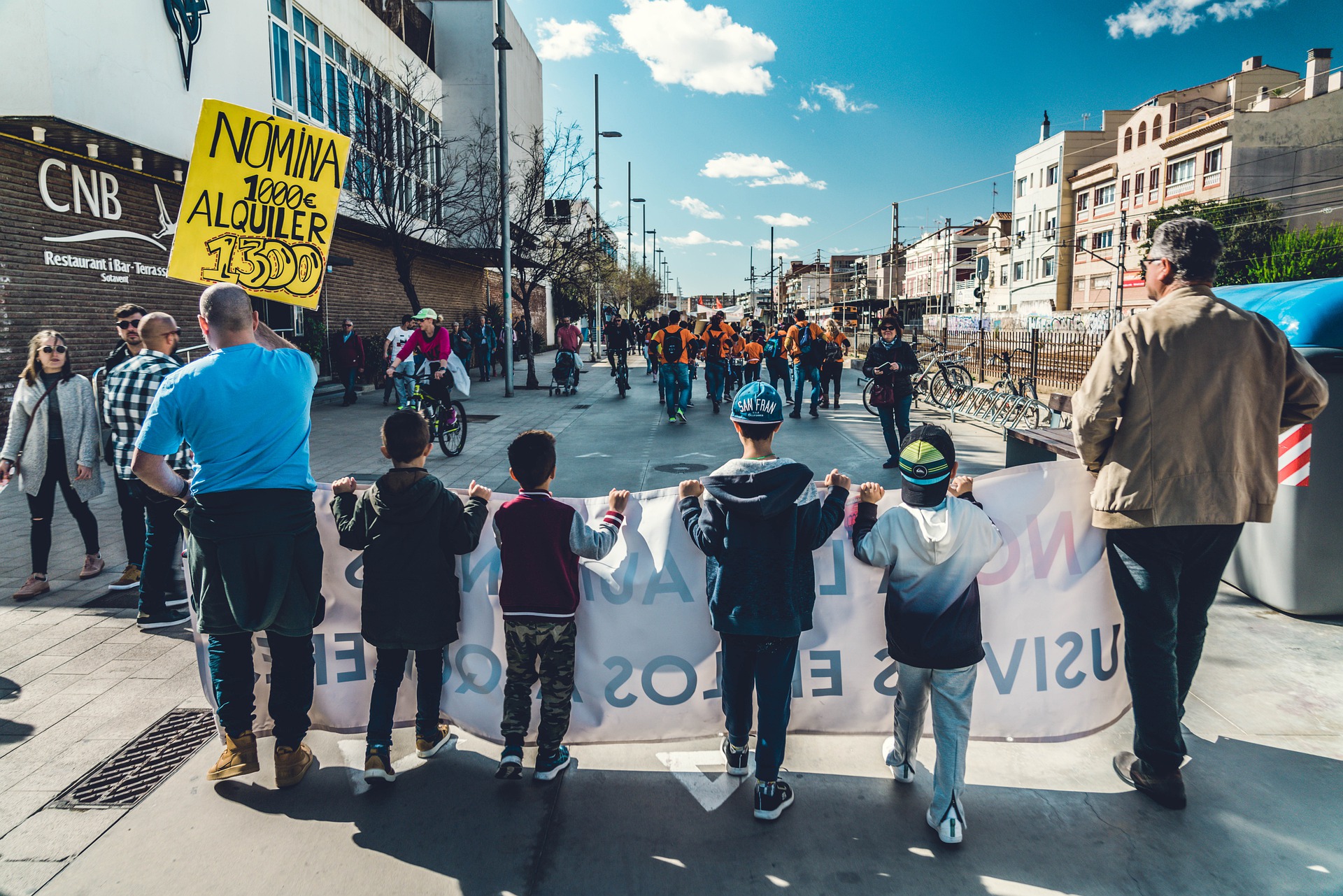If the state of alarm in Spain is lifted on May 9, this will have major consequences for vulnerable families still protected by special government measures against evictions as a result of the corona pandemic.
Once restrictions lift, it will be legal again for large landlords to expel tenants with payment arrears. The real estate sector foresees between 30,000 and 40,0000 evictions carried out once the alarm is lifted. This number was also confirmed by experts outside the industry, based on the number of payment arrears recorded in recent months and the forecast for the next 40 days. This also includes out-of-home placements carried out by the smaller real estate lessors.
Another 900,000 temporarily unemployed in Spain
Major rental organisations estimate that 350,000 to 400,000 people across Spain are in a vulnerable situation; a number that could increase in the coming weeks. The expectation, on average, is for payment arrears of 10% of rents on May 9. However, some landlords estimate this percentage is above 15%. This is partly due to the slow economic recovery, the delays in the vaccination campaign and the current epidemiological trend. In addition, a temporary unemployment scheme ERTE is still in place for 900,000 employees.
Nobody ends up on the street during state of alarm
About 60,000 households will no longer be protected by the government after the state of alarm. The result could be around 30,000 evictions. Exactly how large that number will be depends on what the so-called small landlords are going to do. A ‘small landlord’ is a landlord with a maximum of ten rental contracts; they control most of the rental market,
Since the onset of the first state of alarm, vulnerable residents of Spain have been protected against the consequences of a late payment of the rent or the mortgage. Leases with an end date that falls within this period are automatically renewed.
Waiting for new Housing Act
The content of the new Housing Act will play a role in the actual number of custodial placements. PSOE and Unidas Podemos have been working on a revision of this law for some time, but an agreement has not yet been reached. For example, Podemos wants to introduce a maximum rental price, but the PSOE has not yet agreed to this. The coalition parties also cannot agree on the tax benefits for real estate owners, regulations for larger landlords and rules regarding vacant homes.
What the coalition partners have remarkably agreed on is an in-principle agreement that suspends the evictions of vulnerable families for up to three months, so the autonomous regions have time to find alternative, permanent housing for them.


